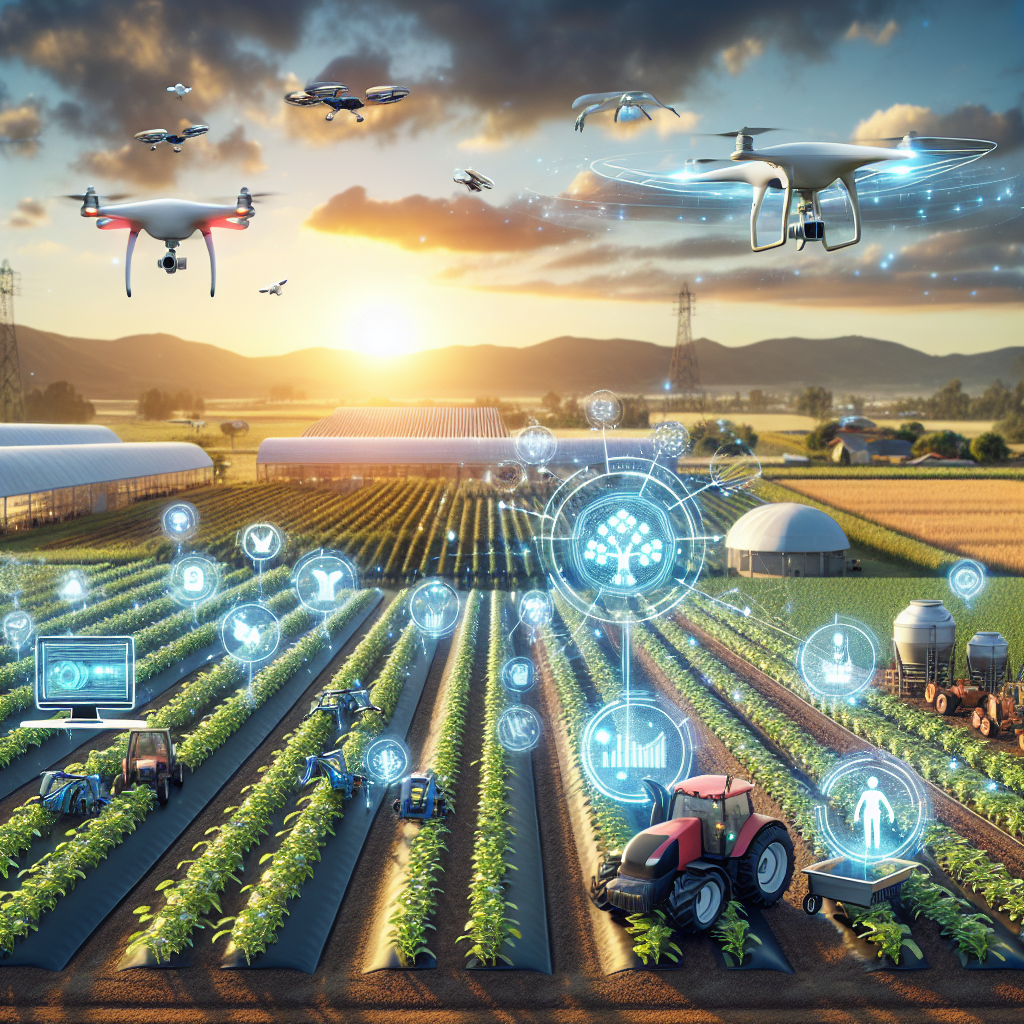In recent years, the agriculture industry has seen a significant shift towards the adoption of smart technologies to improve productivity, efficiency, and sustainability. One of the most promising technologies in this regard is Artificial Intelligence (AI), which has the potential to revolutionize the way farmers manage their operations.
AI integration in agriculture involves the use of machine learning algorithms and data analytics to optimize various aspects of farming practices. By leveraging AI, farmers can make more informed decisions, automate repetitive tasks, and improve crop yields. In this article, we will explore how AI integration is transforming smart agriculture practices and the benefits it offers to farmers.
Benefits of AI Integration in Agriculture
1. Precision Farming: AI-powered tools can analyze data from sensors, drones, and satellites to create detailed maps of fields, identifying areas that require specific treatments such as irrigation, fertilization, or pest control. This allows farmers to apply resources more efficiently, reducing costs and minimizing environmental impact.
2. Crop Monitoring: AI algorithms can process images captured by drones or satellites to monitor crop health, detect diseases, pests, and nutrient deficiencies. This enables farmers to take proactive measures to protect their crops and maximize yields.
3. Predictive Analytics: AI can analyze historical data on weather patterns, soil quality, crop performance, and market trends to make accurate predictions about future outcomes. This helps farmers make informed decisions about planting, harvesting, and marketing their produce.
4. Automated Machinery: AI-powered robots and drones can perform tasks such as planting, weeding, spraying, and harvesting with precision and efficiency. This reduces the need for manual labor and increases productivity on the farm.
5. Supply Chain Optimization: AI can optimize the supply chain by predicting demand, tracking inventory levels, and identifying the most cost-effective transportation routes. This helps farmers streamline their operations and maximize profitability.
6. Risk Management: AI can assess risks such as weather events, pests, diseases, and market fluctuations, allowing farmers to take proactive measures to mitigate them. This helps reduce losses and ensure the long-term sustainability of the farm.
7. Sustainability: By optimizing resource use and minimizing waste, AI integration can help farmers adopt more sustainable practices that preserve the environment and support long-term food security.
FAQs
Q: How can AI help farmers improve crop yields?
A: AI can analyze data on soil quality, weather conditions, crop health, and other factors to provide farmers with insights on how to optimize their farming practices. By identifying areas that require specific treatments and predicting future outcomes, AI can help farmers make informed decisions that lead to higher crop yields.
Q: Is AI integration expensive for farmers?
A: While the initial investment in AI technology may be significant, the long-term benefits of improved productivity, efficiency, and sustainability can outweigh the costs. Additionally, there are various government grants and subsidies available to support farmers in adopting smart technologies.
Q: Can small-scale farmers benefit from AI integration?
A: Yes, AI technologies are scalable and can be adapted to suit the needs of small-scale farmers. By leveraging AI tools for precision farming, crop monitoring, and supply chain optimization, small-scale farmers can improve their operations and compete more effectively in the market.
Q: How can farmers ensure data privacy and security when using AI?
A: It is important for farmers to work with reputable AI providers that prioritize data privacy and security. Farmers should ensure that their data is encrypted, stored securely, and only accessed by authorized personnel. Additionally, farmers should have clear agreements in place with AI providers regarding data ownership and usage rights.
In conclusion, AI integration holds great promise for transforming smart agriculture practices and helping farmers improve productivity, efficiency, and sustainability. By leveraging AI-powered tools for precision farming, crop monitoring, predictive analytics, and supply chain optimization, farmers can make more informed decisions and achieve better outcomes on the farm. With the right strategies and partnerships in place, AI integration can revolutionize the agriculture industry and drive positive change for farmers and the environment.

